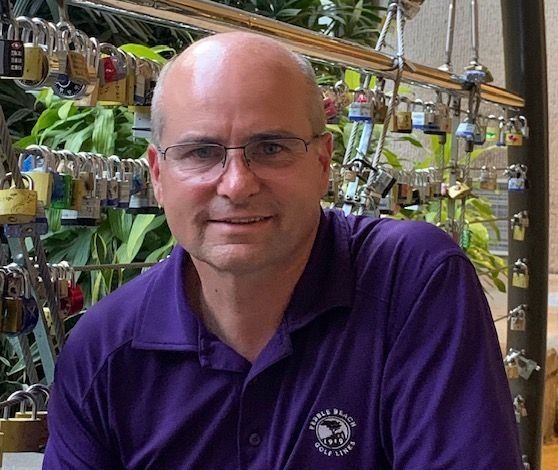Learn more about my book "The Courageous Ask"
Board/CEO Relationship: The Land of Assumption
The Land of Assumption is a land wrought with the monsters of stress, conflict, and misunderstanding. While venturing into this land is a part of human nature, organizations must battle that nature in order for their mission to be accomplished to its best outcomes.
Our leader knows we care and appreciate them.
The board made that decision because they want to see me fail.
The executive said that during his speech because they want the board to look stupid and uncooperative.
Our new board members know our mission and what we are about. They know their responsibilities.
Our executive knows how we feel about the job they are doing.
The board knows I appreciate their service to our organization.
These are all examples of how we make assumptions in our organizations, sometimes assuming the motives of others.
(This blog focuses on starting a conversation centered on preventing the fall of nonprofit leaders. I write it from a Christian perspective, but all leaders will benefit. Be sure to sign up to receive these articles via email every Tuesday at
briankreeger.com as well as taking a look at previous blog articles. In addition to receiving these articles two days before they hit social media, you will receive the article "5 Early Indicators of a Christian Nonprofit Leadership Fall" along with the Contents, Introduction and the Appendix (My story) of my book,
The Courageous Ask: A Proactive Approach to Prevent the Fall of Christian Nonprofit Leaders.)
When we are judgmental without all of the information, we often find ourselves in the land of assumption. In the land of assumption, we find things that are accepted as true or as certain to happen but without proof.
And taking assumption as fact can lead us down the wrong path.
Henry Winkler (yes, The Fonz) said, “Assumptions are the termites of relationships.”
Instead of operating on assumption, Courageously Ask. Communicate.
Just like in a healthy, long-term marriage, solid, transparent communication between a leader and their accountability structure is vital.
This isn’t always easy in this day and age, as we find ourselves beholden to the text message, email, and social media—communication that is easy to misconstrue and often fails to capture necessary context.
Many modern modes of communication simply cannot capture all of the forms of nonverbal communication.
Albert Mehrabian, professor emeritus of psychology at UCLA, is known for his breakdown of human communication into the following: 7 percent spoken words, 38 percent tone of voice, and 55 percent body language.
While some may disagree on those exact numbers, it is indisputable that nonverbal communication dominates verbal.
So, if we are continually relying on modes of communication only containing words in written form, research shows that we are missing a large majority of the message being communicated. When we miss a large majority of the communication, human nature typically sends us to the land of assumption where tension, conflict, and uninformed decisions reside.
It doesn’t matter if there is conflict between the board and leader, if there is conflict among board members, or if there are assumptions among staff creating drama—increased communication to gain information almost always provides a ticket out of the land of assumption.
People, especially leaders, need to have the courage to ask the difficult questions.
The answer to an unasked question could be the key to increased understanding and relationship, but we have to push aside the temptation to assume in order to ask the question.
Without that answer there could be increased drama that plants a seed of doubt in a leader or a board member. That seed could grow to accusations or maybe even a fall.
Sometimes we have to fight human nature and assume the best until we have all of the facts.
The presumed motive
a person comes up with can either be positive or negative.
My experience has shown me that the direction of a judgment of motives is based more on the person making the judgment than the person being judged.
If the person making the judgment has a generally rosy view of life and people, the motive will be judged as positive and beneficial, with good intentions. But if the person making the judgment has a sour outlook on life and people, the motive will most likely be judged as negative, devious, and perhaps manipulative.
Unfortunately, the latter happens way too often.
Many times this happens because of a lack of communication and relationship between leaders and others connected to the organization. As with many parts of human nature that can be potentially damaging to the board-leader relationship, judging motives on both ends can possibly be completely averted with increased communication.
“Over the years
I have noticed that one of the chief ways people get into trouble with one another is by judging motives.” Those are the words of Dr. Jay Adams of the Institute for Nouthetic Studies. For almost 50 years, he was at the forefront of a movement calling pastors and other Christian workers back to the scriptures in their counseling ministries.
He goes on to say, “How seldom do we admit we are only guessing and do not really know what is going on in someone else's mind. We think and act as though we have the ability to read minds, but the fact is, we don't. The ability to read minds and motives belongs to God alone.”
But we tend to think we can surmise another’s motives, don’t we? The chances we are going to accurately determine someone’s motives as part of a snap judgment are low. But that is what we typically do, especially with our leaders.
Dr. Adams writes that “until the evidence proves otherwise, we are to make the loving interpretation of another's words or actions, always giving him or her the benefit of every doubt: ‘Love…. believes all things, hopes all things’ (1 Cor. 13:7).”
It is the rare person that can do this off the cuff. I hope that person is you. Another battle against human nature.
I assume these thoughts will help you in your interactions with those in your organization this week.
Be Courageous!
Be Proactive!
Be sure to sign up to receive these articles via email every Tuesday at
briankreeger.com. In addition to receiving these articles two days before they hit social media, you will receive the article "5 Early Indicators of a Christian Nonprofit Leadership Fall" along with the Contents, Introduction and the Appendix (My Story) of my book,
The Courageous Ask: A Proactive Approach to Prevent the Fall of Christian Nonprofit Leaders.
#LeadershipFall #LeadershipSurvival #NonprofitRelationships #ProactiveApproach #LeadershipStruggles #LeadershipBattles #ChristianExecutiveLeader #ChristianLeader #CourageousAsk #Proactive #ProactiveLeadership #NonprofitLeadership #ExecutiveLeadership #ChristianLeadershipFall #Board/CEORelationship #Assumptions #JayAdams #OrganizationalCommunication Board/CEOCommunication






